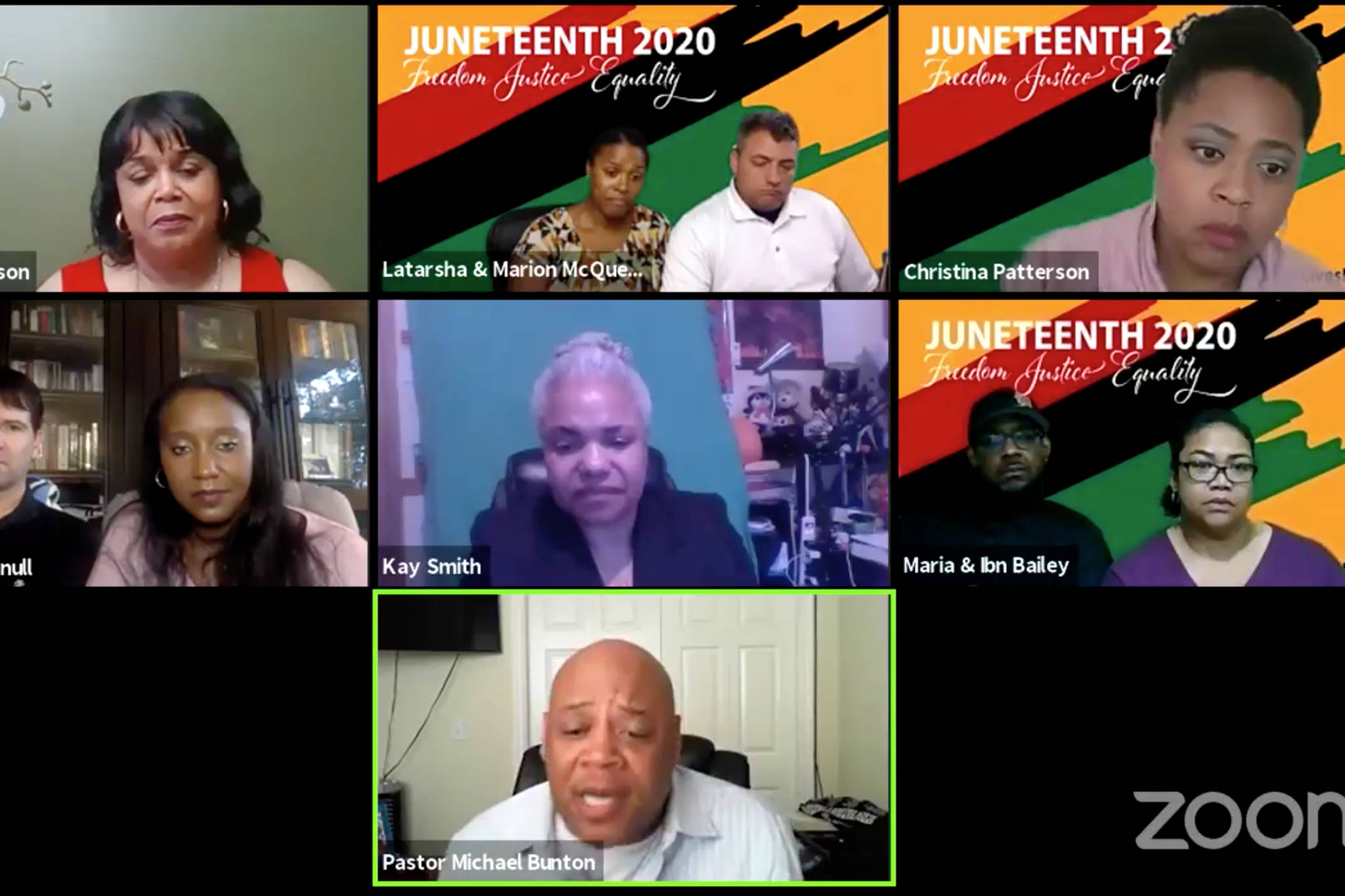It was an atypically somber Juneteenth event.
Black Awareness Association, Juneau, held a virtual event Friday on the 155th anniversary of the day Union Maj. Gen. Gordon Granger announced in Galveston, Texas, that all slaves in the state were free. June 19 has long been a celebration of the end of slavery in the U.S. It is not a federal holiday, but in recent years, it has been observed or celebrated by an increasing number of states.
Sherry Patterson, BAA president, said the death of George Floyd — a black man who died in police custody in Minneapolis after a white police officer pressed his knee into Floyd’s neck for more than seven minutes — took the celebratory sheen off the day.
Floyd’s death, which was captured on video, has been followed worldwide by weeks of vigils, protests and reflection on racial divide.
[Hundreds gather in Juneau for physical and virtual rallies]
“We are grieving, we are hurting, we are heartbroken, but we want to acknowledge Juneteenth,” Patterson said during the virtual event that had been viewed more than 2,000 times as of Saturday morning.
During the two-hour discussion, a panel of BAA members answered previously submitted questions about race and racism, spoke about black history, delivered thoughts on the role of churches and shared their personal experiences.
Many of the questions centered on ways both the community and individuals can be welcoming, supportive and inclusive.
Being mindful of representation and aware of implicit biases are important parts of that, panelists said.
Latarsha McQueen recommended visiting tolerance.org or implicit.harvard.edu to reflect on the sorts of implicit bias one might have.
“You’ll find lots of tools to add to your toolbox, your repertoire, to increase your sensitivity and just recognize where your biases are and be able to change your behavior if required,” McQueen said.
Christina Patterson said raceforward.org similarly offers good resources for a team or group.
Being willing to engage with authors and speakers who encourage racial equity is also important, panelists said.
Sarita Knull said people should summon the courage to ask their employer to bring in such a speaker if their workplace culture needs improvement.
Other questions fielded by panelists focused on current events.
One question asked if people of color who have been victims of violence may have been targets of the Ku Klux Klan.
“I think the answer is no,” McQueen said. “I think it’s dangerous to think when we see these things that it has to be the KKK, because I think it reduces the reality of racism.”
She said the KKK is unnecessary to make systemic racism “successful,” but being outspoken against racism is needed to make it “unsuccessful.”
“When you hear somebody say a racist comment in your workplace, you need to call them out on it because it’s not OK, it’s 2020,” McQueen said. “Teach your kids that it’s OK to be black. It’s OK to have people who are different than you. There’s nothing about someone —the color of their skin, the way they talk, where they live —that makes them unworthy of love.”
Panelists also shared their thoughts on calls to defund police departments that have gained national prominence.
“I think from our standpoint, here, speaking for Juneau, of course we need the police,” said Ibn Bailey.
However, Bailey said it is worthwhile to consider what residents want from their local police department and what aspects deserve funding.
[Community shares concerns about policing and racism]
“What do we want to support in our police and what don’t we want to support in our police?” Bailey said.
He also spoke in favor of events like National Night Out that result in positive interactions between law enforcement and the community.
[Photos: See National Night Out 2019]
Knull said the community has a symbiotic relationship with the police department, and it’s healthy to question what is being done with funds.
“That is not to say we don’t recognize and approve of those who do their jobs well,” Knull said.
Panelists also touched on the importance of guarding mental health in light of a year that’s been marred by violence and pandemic. Those included taking the time to rest, being mindful of eating and drinking healthy things and taking time to process emotions.
In addition to taking action to fortify mental health, BAA members encouraged both black Juneauites and their allies to take action.
Sherry Patterson encouraged black community members to vote, run for office and take positive action to make change. She encouraged people who want to be allies to take action, too.
“When you see a wrong, when you see an injustice, say something, do something,” Sherry Patterson said. “Be a part of the solution.”
Sharing black history
Black Awareness Association, Juneau panelists shared during the virtual event historical events that generally aren’t widely known.
Among them were:
- The story of “Black Wall Street,” an affluent black neighborhood in Tulsa, Oklahoma, that was destroyed in the Tulsa Race Massacre in 1921.
- Dr. Olivia Hooker, a psychologist and survivor of the Tulsa Race Massacre, who was the first black woman to join the U.S. Coast Guard.
- “The privilege, honor and duty” of the right to vote, and the history of black voting rights.
- The story of Richard and Mildred Loving, an interracial couple, who were at the center of the case that led to a Supreme Court decision in 1967 that deemed laws against interracial marriage are unconstitutional.
• Contact Ben Hohenstatt at (907)308-4895 or bhohenstatt@juneauempire.com. Follow him on Twitter at @BenHohenstatt

